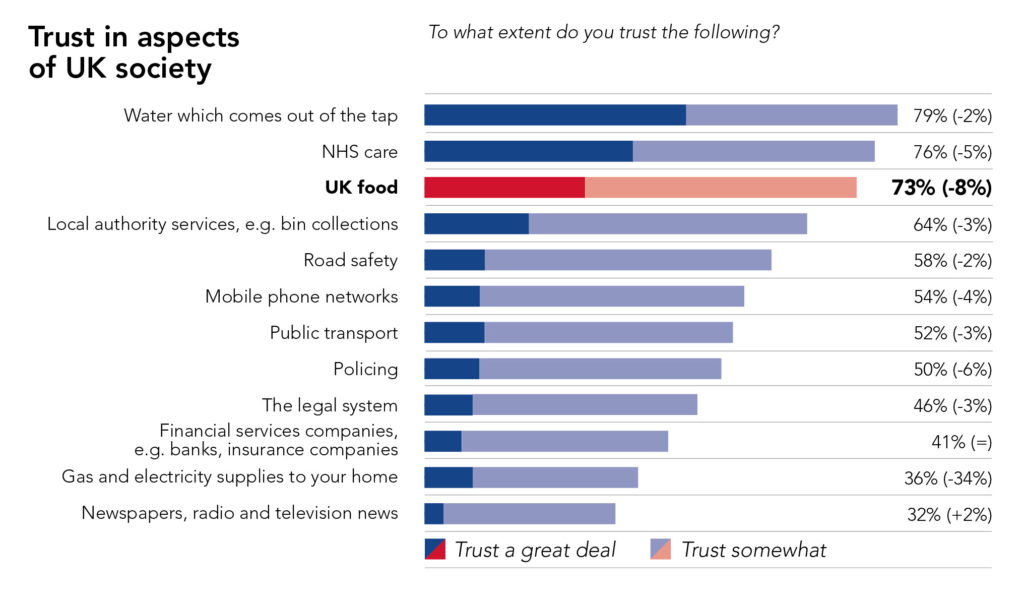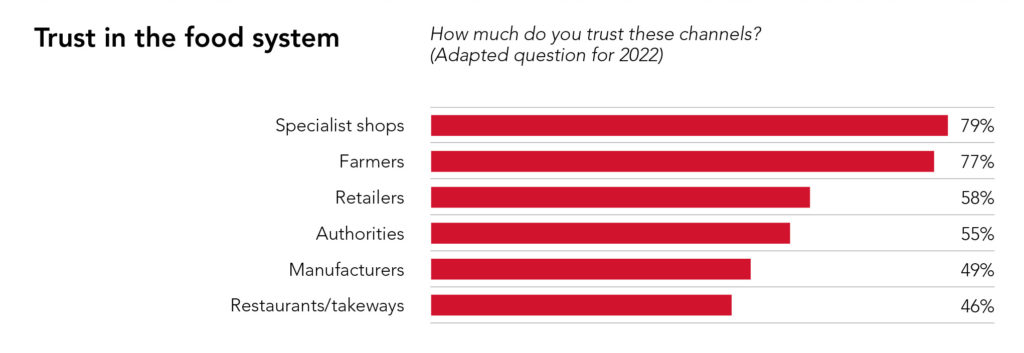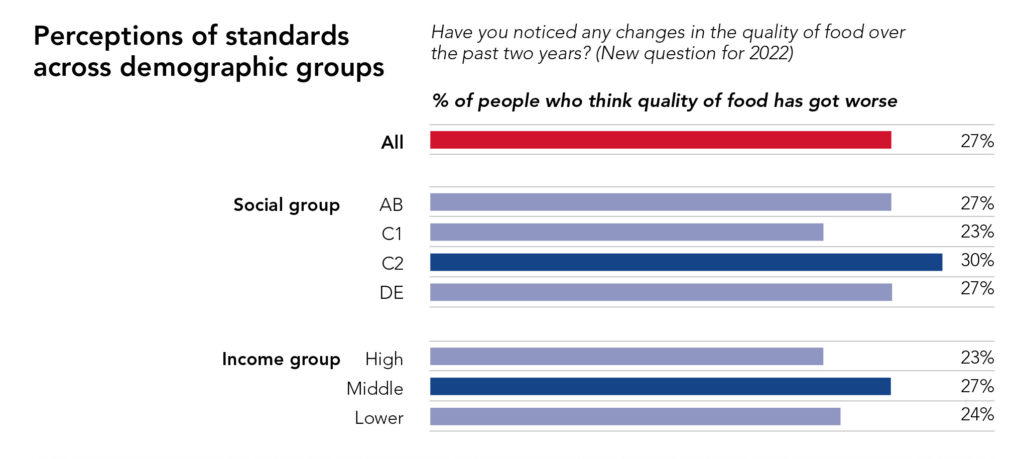Trust in UK institutions has gone down across the board
Consumer trust has declined in almost all UK institutions since the first Index was published. Trust in gas and energy suppliers has seen the most severe change in levels of trust. NHS care, water, and food remain in the top three most trusted institutions, but these too saw a drop.

Whilst approximately two-thirds of people still agree that food in the UK is safe, changes in consumer trust in food has seen one of the biggest swings of all aspects of UK society, with an eight per cent decrease in trust since 2021.
One of the key reasons we are seeing a change in consumer sentiment is the cost-of-living crisis. Grocery price inflation hit 5.9 per cent (FSA, June 2022), its highest level since December 2011. Rising prices for food and drink resulted in the largest upwards contribution to the rise in the Consumer Price Index between April and May (ONS, May 2022).
Against that backdrop, shoppers are being forced to change their buying habits. 46 per cent of respondents said they were changing their buying behaviour, with changes to habits seen across all supermarkets.

One of the most striking findings from the research is that four in ten people do not trust food bought from UK supermarkets*, suggesting that as people switch to value ranges, there is an assumption that standards are weaker. This is despite the reality that most British-sourced value ranges and brands are Red Tractor assured to the same high UK specifications as the equivalent premium options.

Brexit is also having an impact on perception. 27 per cent of survey respondents said they felt the standard of food has worsened over the last two years. Among consumers in the social group made up of skilled manual workers (C2, e.g., tradespeople, healthcare assistants), this perception is even stronger, with 30 per cent of people believing that food standards are worsening, compared to 27 per cent nationally. This follows significant media coverage of trade deals potentially allowing in large amounts of food produced to lower standards of animal welfare and product safety, with some countries producing food to standards not allowed in the UK due to our rigorous regulations.
